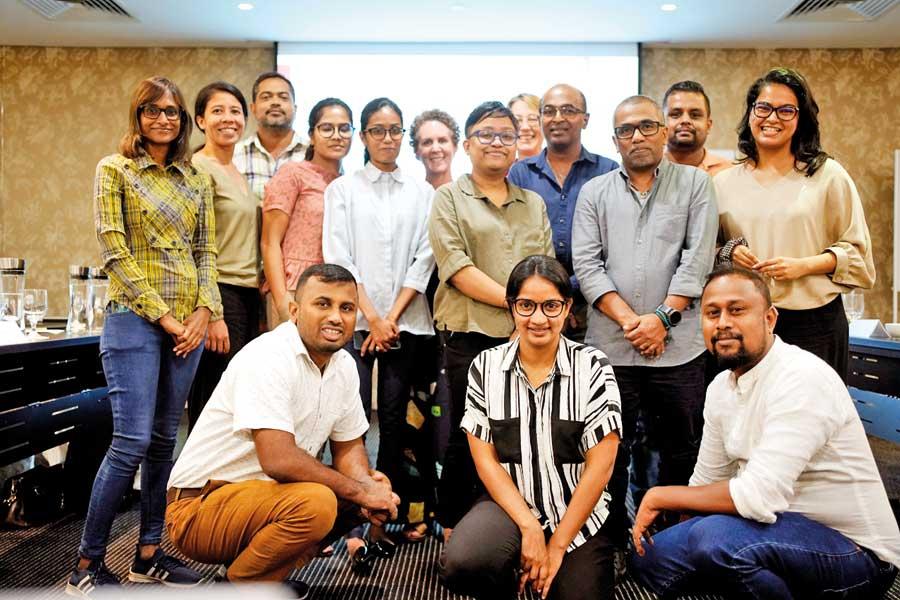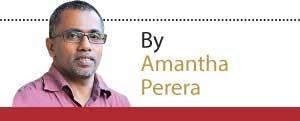21 Sep 2022 - {{hitsCtrl.values.hits}}

Dart Centre for Journalism and Trauma, Asia Pacific brought together a group of journalists, among them 12 are from Sri Lanka, to take part in a programme on psycho-social safety and workplace trauma safety skills
After a lapse of almost four years, last week I got the chance to spend multiple days with a group of Sri Lankan colleagues. The Dart Centre for Journalism and Trauma, Asia Pacific last week brought together 12 Sri Lankan journalists to Singapore for a two-and-a-half day programme on psycho-social safety and workplace trauma safety skills.
colleagues. The Dart Centre for Journalism and Trauma, Asia Pacific last week brought together 12 Sri Lankan journalists to Singapore for a two-and-a-half day programme on psycho-social safety and workplace trauma safety skills.
The group included some of the most senior journalists currently working as well as others who had come into the profession during the last decade. The discussions were open, intimate and sometimes painfully powerful. Importantly they were authentic and were from working journalists.
"The stories they told were more about themselves. It was important that they got that chance. Most say that they don’t want to take their fears and worries back home. The home front is facing multiple stressors as it is"
The stories they told were more about themselves. It was important that they got that chance. Most say that they don’t want to take their fears and worries back home. The home front is facing multiple stressors as it is. Their office environments are such that to even hint at mental fragility would be collectively looked down upon. Worse, there are still old prehistoric relics in the newsrooms who actively promote the suicidal bulletproof approach to journalism.
My colleagues spoke of the mental stressors of working in such an environment. My fellow trainer and I had the job of guiding them to acquire skills that would allow them to continue to work safely.
It has been ten years since I began my journey into acquiring more psycho-social skills to do my job safely. It has been that long since I wanted to bring back those skills to the Sri Lankan journalism community.
The pushback I received initially was such that I did not even want to talk about this with anyone remotely associated with journalism. What helped me was my continuous engagements with Dart and the trajectory my career took, that of gaining more international recognition as a journalists and also as an academic.
The Sri Lankan journalism training sphere is full of pseudo experts. The worst are those with next to no experience or any academic or research background on journalism. Whose only credential is that they have self-appointed themselves as experts. They and others with cosmetic expertise will periodically move in and out of whatever journalism niche that appears to be viral and more importantly that could gain funding. These experts have done more harm than any good. They turn off active journalists from seeking the skills they need by creating and prompting a culture of workshop hunters.
"The cosmetic expertise will periodically move in and out of whatever journalism niche that appears to be viral and more importantly that could gain funding. These experts have done more harm than any good. They turn off active journalists from seeking the skills they need by creating and prompting a culture of workshop hunters"
It took me ten years to put this programme together with the best minds on journalism and trauma globally. But, I am glad that I could be part of this amazing programme. This group now becomes beacons for a trauma informed journalism community in Sri Lanka. They will take this message far and wide.
Despite all that the journalism community in Sri Lanka has experienced, from the war to the current economic crisis and facing up to some of the most brutal crackdowns directed at the media, it is just unfathomable why we still encounter the level of internal industry reticence. But we do.
But we also have a newer generation that is willing to change and look at reinventing the news production system. They understand that as journalists, we now need to balance out the goal to be independent and impartial with that of being authentic. Dry, insensitive journalism is no more valid.
"What helped me was my continuous engagements with Dart and the trajectory my career took, that of gaining more international recognition as a journalists and also as an academic"
This new generation carries the burden of not only reclaiming the lost public trust but also making journalism closer to the ordinary citizen. Understanding the pressures we face helps us to do this.
This new group will bring back the newest dialogue on trauma sensitive journalism. It is also in a position to show that journalism can be done in an empathic way without losing professional standards or integrity.
Ten years in the making and worth every minute of it.
The writer is a journalism researcher. He can be contacted on [email protected]
10 Jan 2025 2 hours ago
10 Jan 2025 2 hours ago
10 Jan 2025 3 hours ago
10 Jan 2025 3 hours ago
10 Jan 2025 4 hours ago